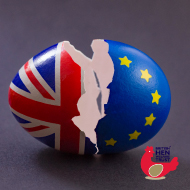
Potential changes in trade policies present risk for hen welfare
In a recent statement, the British Hen Welfare Trust (BHWT) discussed its concerns over the future of the British egg industry following Brexit.
The primary concern expressed in the statement is that if tariffs are removed – which the government has suggested will happen in the event of a no-deal Brexit – then a flood of cheaper eggs produced to lower standards will hit the UK market, as producers from countries where battery farming is legal will be able to undercut UK farmers.
BHWT, the NFU and the British Free Range Egg Producers Association (BFREPA) have confirmed that they will continue to urge the government to preserve this important industry, through upholding animal welfare standards and protecting free range egg farmers.



 The latest
The latest